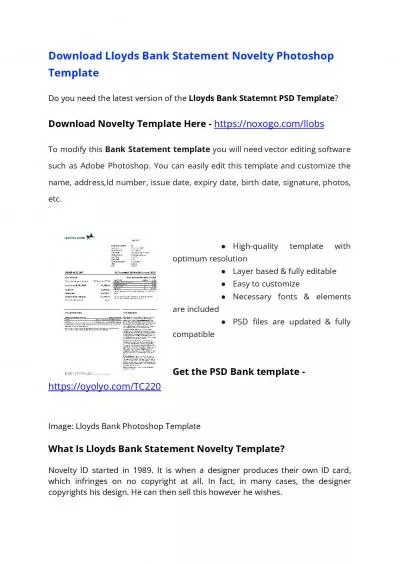PDF-of the Board will be ex officio the President of the World Bank who sh
Author : jones | Published Date : 2021-08-10
will guarantee eligible investments against losses resulting from noncommercial risk In addition it will carry out research and promotional activities The Convention
Presentation Embed Code
Download Presentation
Download Presentation The PPT/PDF document "of the Board will be ex officio the Pres..." is the property of its rightful owner. Permission is granted to download and print the materials on this website for personal, non-commercial use only, and to display it on your personal computer provided you do not modify the materials and that you retain all copyright notices contained in the materials. By downloading content from our website, you accept the terms of this agreement.
of the Board will be ex officio the President of the World Bank who sh: Transcript
Download Rules Of Document
"of the Board will be ex officio the President of the World Bank who sh"The content belongs to its owner. You may download and print it for personal use, without modification, and keep all copyright notices. By downloading, you agree to these terms.
Related Documents














